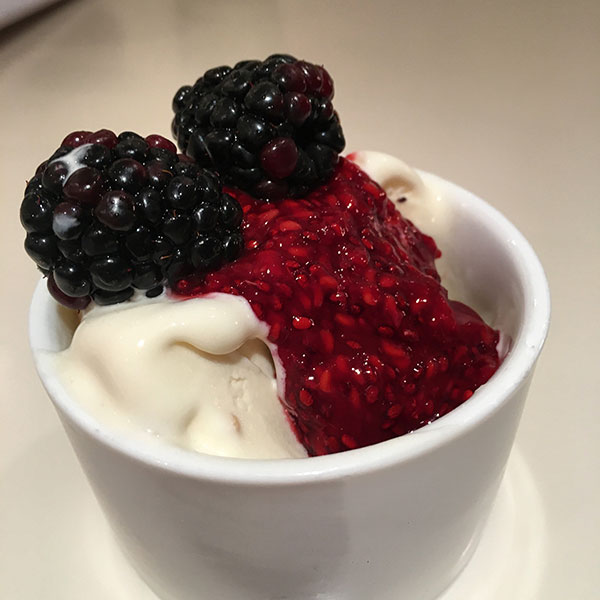180g Fresh or Frozen Raspberries (Defrosted)
2½tbsp Chia Seeds
1-2tbsp Raw honey (*) or maple syrup (optional)
½ tsp Vanilla extract
¼ tsp Lemon juice (optional)
Put the raspberries (thawed if frozen) in a small food processor and pulse until reduced to a chunky purée, not completely smooth.
Add the chia seeds, raw honey (*) or maple syrup (if using) although we recommend you taste it before as it may already be sweet enough.
Add the vanilla extract and lemon juice (if using) and pulse until well mixed.
Pour the jam into a glass jar with a lid.
Let rest in the fridge for an hour or longer to allow the chia seeds to expand and set the jam.
Serve with fresh bread and almond butter, use in baking or top Greek yogurt with it for a quick breakfast or snack.
Chia jam keeps in the fridge for up to 3 days but freezes well.
(*) Avoid for babies under 12 months of age and if you are following a vegan diet.

Raspberries are low in calories and high in FIBRE. They are also a great source of immune boosting VITAMIN C and ANTIOXIDANTS (polyphenols, flavonols and the anti-inflammatory quercetin) that may prevent cellular damage linked to cancer and cardiovascular disease.
Chia seeds contain complete protein like that in animal sources with the added benefit that they contain good levels of OMEGA-3 FATTY ACIDS which research shows have anti-inflammatory properties, may help keep a healthy brain in old age and protect our heart against cardiovascular diseases.
Raw Honey is preferable to processed honey as it has not been heated, a process that destroys its ANTIBACTERIAl properties and the DIGESTIVE ENZYMES it contains. Honey is quite high in FRUCTOSE and glucose (sugar) so consume in moderation. Avoid feeding honey babies younger than 12 months as it may contain a resistant form (a spore) of the clostridium botulinum bacteria that may contain botulism. From the age of 12 months’ babies develop resistance to this spores.
DOWNLOAD THIS RECIPE